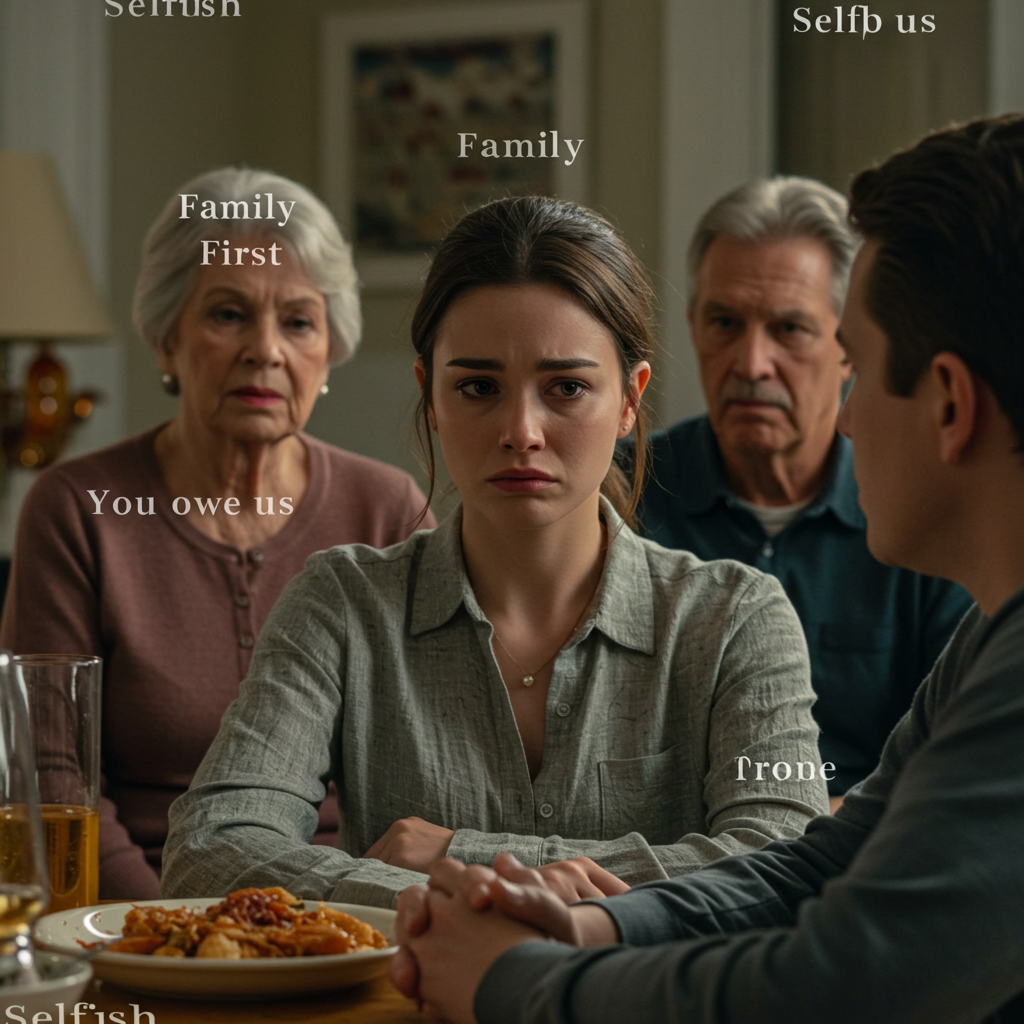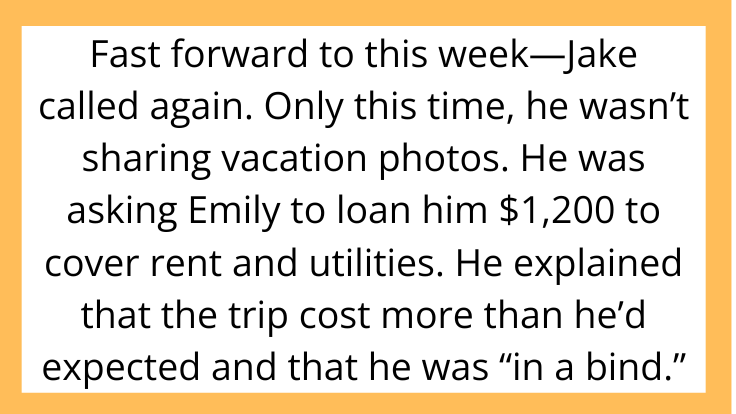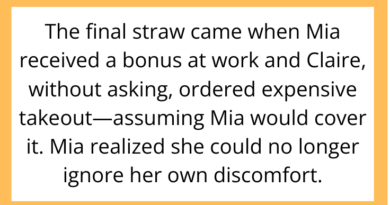AITAH for Refusing to Help My Brother Pay His Rent After He Spent His Money on a Vacation?
When it comes to family and finances, the lines between generosity and resentment can blur quickly. In today’s AITAH scenario, a woman grapples with whether she’s heartless for drawing a hard line on her brother’s spending choices—especially when those choices left him unable to cover his bills.
Here’s how it all unfolded.
The Backstory: A Sudden Call for Help

The original poster—let’s call her Emily—shared her story on Reddit’s r/AITAH community. Emily, 33, works full-time and has always been careful with money. She budgets strictly, prioritizes her mortgage and savings, and rarely splurges.
Her younger brother, Jake, 28, has always been more carefree. He works a seasonal job and supplements his income with side gigs. While he pays his bills most months, his finances are often tight.
A few weeks ago, Jake called Emily with exciting news: he was going on a two-week trip to Mexico with friends. Emily was surprised but happy for him. She assumed he’d saved up.
Fast forward to this week—Jake called again. Only this time, he wasn’t sharing vacation photos. He was asking Emily to loan him $1,200 to cover rent and utilities. He explained that the trip cost more than he’d expected and that he was “in a bind.”
Emily said no.
The Fallout: Family Backlash

Jake was stunned by her refusal. He argued that family should help each other no matter what. When Emily calmly reminded him that she couldn’t justify funding his rent when he’d chosen a luxury vacation, Jake became defensive.
He accused her of “caring more about money than people” and told their parents. Soon, Emily began receiving texts from relatives calling her selfish, judgmental, and cold-hearted.
She started to question herself. Was she really punishing Jake for enjoying his life? Was she putting money before family? That’s when she turned to the internet: Am I the villain here?
The Community Responds: Is She the Villain?

Reddit users weighed in—and the consensus was swift and clear.
“You’re not a villain,” one top comment read. “You didn’t cause his problem. He made his own choices.”
Another user wrote: “Helping family doesn’t mean enabling bad decisions.”
The most common arguments in Emily’s favor included:
-
Personal Responsibility: Jake made an adult decision to spend money he couldn’t afford to lose.
-
Pattern of Behavior: This wasn’t the first time Jake had been financially irresponsible.
-
No Obligation: No one is obligated to bail out another adult, even if they’re family.
Still, a minority of commenters saw the situation differently. They argued that empathy should trump judgment. After all, everyone makes mistakes.
“He’s your brother,” one commenter wrote. “Sometimes you help not because someone deserves it but because they need it.”
The Bigger Issue: Support vs. Enabling

This scenario strikes at a deeper dilemma: When does helping become enabling?
It’s one thing to help a loved one facing an emergency beyond their control—like a layoff or medical bill. It’s another to bankroll someone’s lifestyle choices when they repeatedly ignore consequences.
Many commenters shared similar stories:
-
A sister who maxed out credit cards on shopping trips, then expected bailouts.
-
A cousin who spent rent money on concert tickets.
-
A friend who booked a lavish honeymoon instead of paying off student loans.
In all these cases, the common theme was entitlement.
Emily’s story is a reminder that saying “no” to financially irresponsible behavior doesn’t make you unkind—it makes you realistic.
Family Dynamics: The Guilt Factor

Family expectations can be heavy. In many households, there’s an unspoken rule that family comes before all else. But when one person becomes the “responsible one,” it’s easy for others to exploit that reliability.
Emily expressed that she loves her brother but doesn’t want to set a precedent that she’ll cover his expenses every time he overspends. Her boundary wasn’t about punishing Jake—it was about protecting her own well-being.
What Could Emily Have Done Differently?
Some users suggested potential compromises:
-
Offering a partial loan with clear repayment terms.
-
Helping Jake budget to prevent future shortfalls.
-
Suggesting he sell something valuable or pick up extra work.
But ultimately, the majority agreed that Emily did nothing wrong by holding Jake accountable for his choices.
Takeaway: Saying No Is Not Cruel

This AITAH scenario highlights a truth many of us struggle to accept: You can love your family and still refuse to rescue them from self-inflicted problems.
Jake’s rent crisis wasn’t a tragic accident. It was the direct result of a decision he made. Emily didn’t abandon him—she simply respected her own limits.



